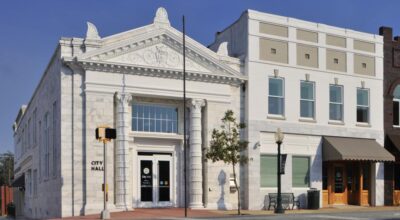City refinances sewer loans to save $858K
Published 11:04 am Tuesday, June 25, 2013
The city of Bainbridge’s plan to re-finance the bonds used to pay for work associated with its Sewer Master Plan is expected to save taxpayers nearly $1 million, according to City Manager Chris Hobby.
The loans, with a total principal of about $12 million, are low-interest loans provided by the Georgia Environmental Finance Authority (GEFA), which is funded by the state government. The original loans were made in 2008, at an interest rate of 4.27 percent. The larger one has a total outstanding principal of $9,340,000, while a smaller one has approximately $3 million in principal.
Last week, the city issued a series of bonds through Raymond James – Morgan Keegan, which effectively re-financed the larger of the two GEFA loans to an interest rate of 3.159 percent. The smaller loan won’t be refinanced, because is at a lower rate than the 4.27 percent.
Because GEFA’s policy is to not re-finance loans it makes, the city government — through its Bainbridge Public Facilities Authority — had to seek out re-financing through the private bond market, according to Hobby.
The re-financing is expected to save the city $858,029.80 over the 20-year life of the GEFA loans, or about 8.75 percent of the total loan amount.
Other costs associated with the re-financing are $50,000 for bond counseling, $59,400 for underwriting and $15,000 for an updated credit rating from Moody’s Investors Service. Hobby said those costs are reflected in the total interest rate cost of 3.159 percent.
Hobby said the Bainbridge Public Facilities Authority is also approved to raise an additional $11 million from a bond issuance if it desires to do so in the future. If the authority opts to raise the additional money, it would go toward paying off any additional costs associated with the city’s sewer master plan.
To date, the city has completed two phases of its master plan: Alice Street/U.S. Highway 27 South and major upgrades to the city’s sewage treatment plant and the Douglas West project. It is very near to finishing the Douglas East project, once work is completed on Lake Douglas Road, Hobby said.
The fourth phase, called the Flint River sewer project, will extend sewer lines to areas between the Flint River and Georgia State Route 97 North, including Liz Felty Lane and the surrounding neighborhood in northeast Bainbridge. However, there is not currently a start date for the fourth phase.
The goal behind implementing the sewer master plan in four years, instead of the 20 years that had been previously anticipated it would take, was to reduce the usage of septic tanks within the city due to environmental concerns, Hobby said.
Usage of septic tanks in cities has created environmental issues, so making reliable, city-maintained sewer service available to all city residents and businesses would have immediate benefits, Hobby said previously.
“It’s getting more difficult to get a permit for a septic tank due to poor percolation in soil,” Hobby said. “In Bainbridge, there’s also been problems with septic tank failures in the Loblolly area off Vada Road and throughout the Lake Douglas area.”
The idea was also to save money, as the material and engineering costs of the sewer extensions would have increased over time, he said.





